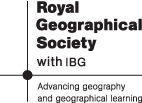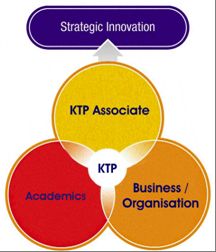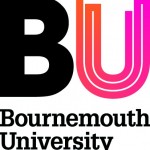Following its recent consultation exercise, the QAA has published the UK Quality Code for Higher Education – Chapter B11: Research Degrees.
This Chapter of the UK Quality Code for Higher Education (the Quality Code) sets out the expectation that research degrees are awarded in a research environment that provides a secure academic standard for doing research and learning about research approaches, methods, procedures and protocols. This environment offers students equality of opportunity and the support they need to achieve successful academic, personal and professional outcomes from research degrees. It is informed by a wider context in which UK research degrees are offered, including an environment of continuous improvement and the desire to learn from others’ experiences in research education. It replaces Section 1 of the Code of Practice: Postgraduate research programmes, published in 2004.
The BU Code of Practice for Research Degrees reflects the best practice set out in this Chapter and the version for 2012/13 is currently being updated to reflect the enhanced expectations set out in this new Chapter B11: Research Degrees.
The chapter includes references to the Vitae Researcher Development Statement/Framework (www.vitae.ac.uk/rdf; www.vitae.ac.uk/rds) and the Concordat to Support the Career Development of Researchers. The Vitae Researcher Development Framework represents a major new approach to researcher development and provides a unique professional development framework for researchers in higher education. Vitae welcomes the aspects of the Quality Code relating to career and personal development of students undertaking doctoral and research master’s degrees. In particular, the guidance to the following sections makes reference to the Vitae Researcher Development Statement/Framework:
- The research environment
- Selection, admission and induction of students
- Supervision
- Development of research and other skills
The Graduate School is working closely with Academic Schools to develop a comprehensive framework of generic and subject specific development opportunities for PGR students in 2012/13.


 UK and India Partnership in Advanced Manufacturing Research Challenges Call document (PDF 246KB)
UK and India Partnership in Advanced Manufacturing Research Challenges Call document (PDF 246KB) Joint Format Proposal Form (Word 174KB)
Joint Format Proposal Form (Word 174KB)
 The Neville Shulman Challenge Award, first given in 2001, is an annual award of £10,000, established for the Society by Neville Shulman CBE and his associates.
The Neville Shulman Challenge Award, first given in 2001, is an annual award of £10,000, established for the Society by Neville Shulman CBE and his associates.








 The Research & Knowledge Exchange Operations (RKE Ops) team will be hosting a lunchtime staff development session on ‘An Introduction to Research Administration and Management’ geared towards professional and support staff on the 11th July 2012 at 12.30pm.
The Research & Knowledge Exchange Operations (RKE Ops) team will be hosting a lunchtime staff development session on ‘An Introduction to Research Administration and Management’ geared towards professional and support staff on the 11th July 2012 at 12.30pm.


 Grant Linked studentships
Grant Linked studentships 












 New Nepal scoping review on maternal & neonatal health
New Nepal scoping review on maternal & neonatal health Fourth INRC Symposium: From Clinical Applications to Neuro-Inspired Computation
Fourth INRC Symposium: From Clinical Applications to Neuro-Inspired Computation Writing policy briefs
Writing policy briefs Upholding Excellence: The Concordat to Support Research Integrity
Upholding Excellence: The Concordat to Support Research Integrity ECR Funding Open Call: Research Culture & Community Grant – Application Deadline Friday 12 December
ECR Funding Open Call: Research Culture & Community Grant – Application Deadline Friday 12 December MSCA Postdoctoral Fellowships 2025 Call
MSCA Postdoctoral Fellowships 2025 Call ERC Advanced Grant 2025 Webinar
ERC Advanced Grant 2025 Webinar Horizon Europe Work Programme 2025 Published
Horizon Europe Work Programme 2025 Published Horizon Europe 2025 Work Programme pre-Published
Horizon Europe 2025 Work Programme pre-Published Update on UKRO services
Update on UKRO services European research project exploring use of ‘virtual twins’ to better manage metabolic associated fatty liver disease
European research project exploring use of ‘virtual twins’ to better manage metabolic associated fatty liver disease